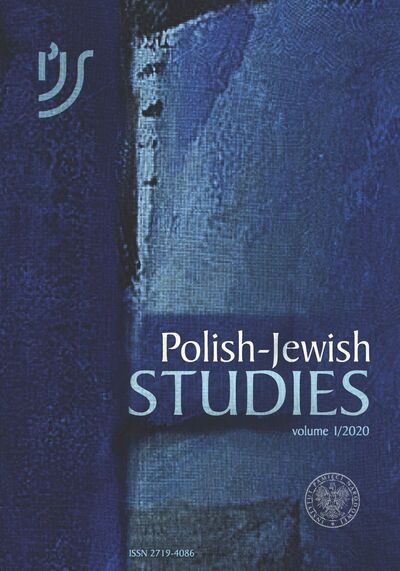Nr 1 (2020)
„Polish-Jewish Studies”, v. 1, Warszawa 2020, 856 s., ISSN: 2719-4086
Dwujęzyczny (polsko-angielski) rocznik jest poświęcony historii społeczności żydowskiej na ziemiach polskich w XX wieku, utrwalaniu pamięci o polskich Żydach oraz wzajemnym i skomplikowanym relacjom polsko-żydowskim. W zamierzeniu redaktorów periodyk został przygotowany jako forum wymiany aktualnych ustaleń badawczych w obszarze „Jewish Studies” przez badaczy z różnych ośrodków naukowych.
Treść pierwszego numeru obejmuje przede wszystkim artykuły dotyczące okresu II wojny światowej, odnoszące się do szerokiego spektrum relacji polsko-żydowskich w czasie najtrudniejszej próby: zarówno negatywnych, jak i pozytywnych doświadczeń. Edycję zamykają teksty recenzyjne ważniejszych i kontrowersyjnych niekiedy opracowań badawczych z ostatnich lat, a także sprawozdania z konferencji naukowych oraz opis inicjatyw na rzecz zachowania pamięci o polskich Żydach.
Pierwszy numer periodyku został opublikowany poniżej, jest dostępny także w wersji elektronicznej w Bibliotece Cyfrowej IPN na portalu przystanekhistoria.pl.
 Język Polski
Język Polski
 English
English
 Français (France)
Français (France)
 Italiano
Italiano
 Deutsch
Deutsch


 PDF
PDF

